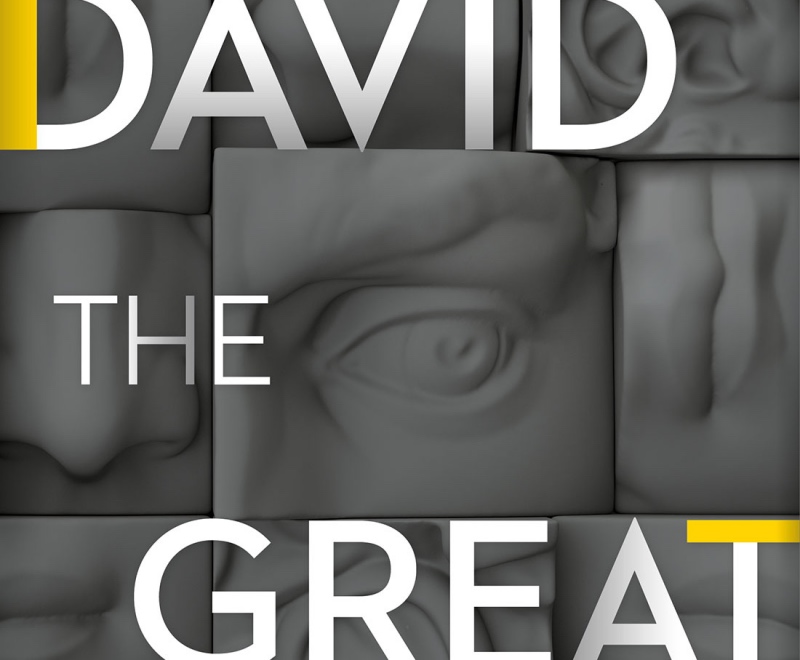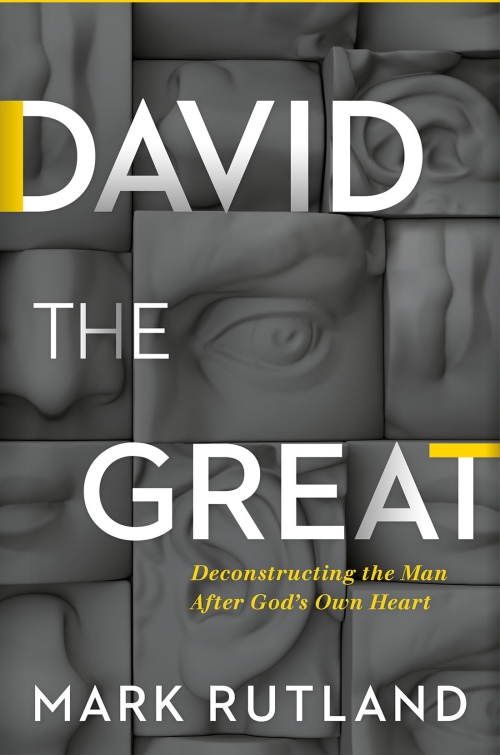
DAVID ADAMS reads Mark Rutland’s ‘David the Great’…
Mark Rutland
David The Great: Deconstructing the Man After God’s Own Heart
Charisma House, Florida, US, 2018
ISBN-13: 978-1629995267

“There is so much we can learn from David. Lessons for life and leadership are on every page of his story. Some of them are about what to do, and some are what not to do.”
– From David the Great.
King David is one of the most widely recognised figures of the Bible and his story is often presented as that of an idealised personality – the shepherd boy who killed Goliath with a single stone and who rose to become a great warrior-king.
Yet, as well as being a national leader, gifted warrior and master strategist, David was also an inspiring religious leader, poet and writer of psalms, and a gifted musician. And he was an adulterer, a murderer, a mercenary without mercy, and a man who broke the laws of both God and men.
Yet, as Mark Rutland, founder of US-based mission and ministry organisation Global Servants and president of the National Institute of Christian Leadership in the US, shows in this book about David’s life, it’s only by looking at what the Bible says about the man in all his complexity that we can truly draw out the lessons his life has for us.
“The reality is that while David was no saint, neither was he a monster. He was a complex man, perhaps one of the most complicated and conflicted leaders of all time,” writes Dr Rutland. “He was a multi-faceted genius whose abilities in seemingly mutually exclusive genres are unparalleled. He could make war and write soul-piercing poetry with equal facility. We may well be shocked by his sins, but we are also inspired by his victories and moved by his intimacy with the God of Abraham. There is much, ever so much, to learn from his life.”
Rutland has written this book as a narrative largely following the Biblical account in I and II Samuel as well as in other parts of the Bible, meaning it’s written in a free-flowing style rather than being an intense study.
The text, as a result, follows the trajectory of David’s life – from his meteoric rise from shepherd boy to anointed successor to King Saul to his time as an outcast while Saul hunted him, his subsequent ascension to the throne and his reign as king of a united Israel, the rebellion of his son Absolom and other hardships he faced in his later years, along with, of course, his great achievements as a ruler, including preparing for what would be his son Solomon’s key project – the building of the Temple in Jerusalem.
Rutland doesn’t shy away from the parts of David’s life – and there are many – that don’t measure up, the most famous being, of course, his adulterous liaison with Bathsheba and the horrific consequences that flow from it. Nor does he avoid talking about situations which may jar the modern reader but rather offers some contextual explanation that may help with understanding even if we remain repelled by the outcome. David’s time as a mercenary, fighting for the sworn enemies of Israel, the Philistines, is a good example of this as is his polygamy.
The book is interspersed with notes for leaders and lessons from “Old Dr Mark” which show how story of David contains truths which apply to us today. There’s some solid wisdom here including that it’s God that raises us up and not the other way around through to what we can learn from David’s experience with his rebellious son Absolom about the hard decisions that sometimes have to be made when leading.
Again, as Rutland writes: “There is so much we can learn from David. Lessons for life and leadership are on every page of his story. Some of them are about what to do, and some are what not to do.”
But there’s also lessons to be learned from those people whose lives intersected with David, including those whom Rutland terms “idiots” (indeed, there’s a whole chapter on “learning from idiots” – one of the key lessons we liked: “Learn from the mistakes of others. Don’t learn them all firsthand”).
One of the overarching themes through the book concerns that famous passage in Acts 13 in which God says David is “a man after my own heart”. Rutland spends some time pondering this question in the light of David’s tumultuous life but eventually comes back to what it was that God saw in David’s heart, despite his sins and his failures. “God saw something in David’s heart that God loved and never gave up on,” he writes, going on to describe the relationship between David and God as “like a long and stormy marriage”. “They loved, struggled, made up, started over, and struggled again, but they never gave up on each other.”
David the Great is a useful and engaging read for anyone who wants to gain a better understanding of the story of this key Biblical figure, but particularly for those, especially leaders, looking to learn from his experience.





